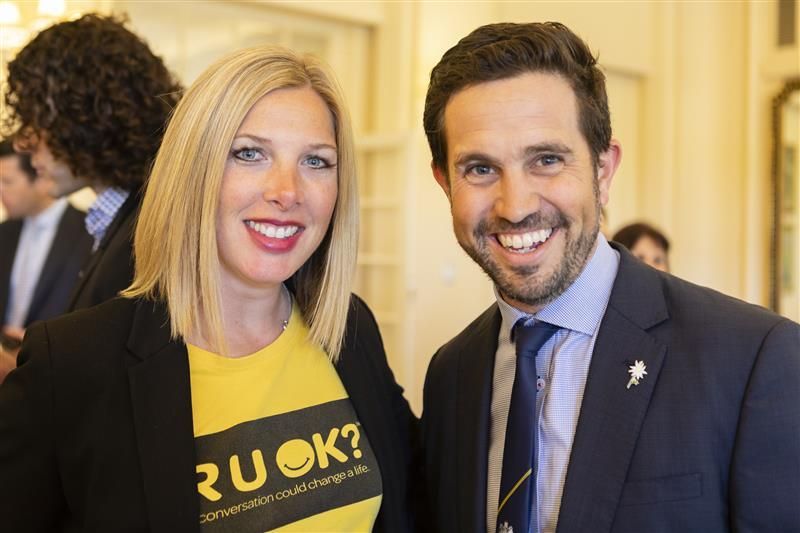“You matter” needs to be part of the conversation
R U OK? Supporter David Hill shares his story and why "You matter" needs to be apart of the conversation.
A few months ago, I asked a friend if she could recommend someone for me to talk to. I’m not sure why asking for that recommendation didn’t feel right, however, I’m sure those who have been in a similar situation understand what I am talking about.
She passed me on the details for a psychologist she had seen after losing her brother to suicide.
Three weeks later my friend checked in again to see if I’d made an appointment, I hadn’t yet and I’m glad she did as it prompted me to make the call.
Sitting in the waiting room I found myself wondering why I was there and what I would say.
I found myself sitting across from a warm, charming, and kind-looking man. After a while I said, “life is really great”, he replied saying, “Wow! Not many people say that when they come to see me. Do you mind me asking why you are here?” At that moment, and only then, it hit me why I was really there. I told him, “Well, I’m afraid of losing it all.”
Opening up and voicing what was wrong was the important first step taken towards my recovery.
On the surface I thought my life was great, I had a good job, a loving and supporting wife, and great kids – ‘living the dream’ as it were. But was I really OK?
Whenever I see or hear the “Are you OK?” question, I immediately follow it with, “and do you matter?”. For me, this is more real – serving as a positive reminder to myself that I do matter.
I myself had gotten pretty good at disguising how I am feeling in front of those close to me, and if anybody did ask me if I was OK, I would undoubtedly answer that I was fine. I’m glad to have had the support of friends and family who noticed the signs something wasn’t OK and encouraged me to seek help.
I have suffered for many years from feeling that I don’t matter, self-proclaimed “I don’t matter syndrome.”
While I have been able to function quite normally, I have had many dark moments wondering whether or not I mattered to my partner, my bosses or colleagues. Always wondering what catastrophe might have happened when they called my name.
I believe everyone one of us needs to know that we matter – at home and at work. Some simple ways we can show people they matter include:
• By being nice to them, would be my simple answer.
• By saying thanks with a smile when somebody does something for you.
• By doing something nice for somebody else without expecting any thanks or reward.
• By buying somebody a chocolate milk because you know they love it.
• By doing the dishes so that your partner doesn’t have to do them yet again.
Set your sights on being nice to one person at work today and one person at home or within your circle of friends. Just by picking up the phone to hear a mate’s voice, you will reinforce that he matters to you, and so today, at least, he is okay. Who knows, he may pay it forward and do the same for someone else. The worst thing that could happen is we end up with a world with more nice people in it!
Fortunately, my therapist has told me that I am moving into remission. Talking to him has helped me enormously because he made me feel like I matter. He gave me permission to feel sad or even lonely, without feeling like it was a problem or a flaw in my character.
Talking to my wife and family about this journey has also helped. I no longer see my emotional state as a weakness, but more a strength of my character. I now do kind things for people every day, but I’m not sure what came first – feeling better so I could do and say kind things or doing and saying kind things which in turn made me feel better. It doesn’t really matter though – the end result is I am now in a better place than I have ever been, even though I thought I was in a good place before.
For more information on how to ask R U OK? and some great resources and tips click here.






















